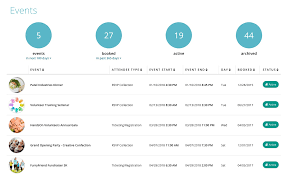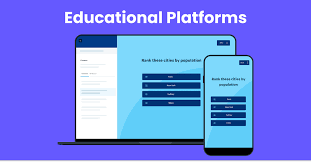The NACS Show: Your Ultimate Guide to the Premier Convenience and Fuel Retailing Event
Every year, the National Association of Convenience Stores (NACS) hosts the NACS Show, the premier event for convenience and fuel retailing professionals. This highly anticipated trade show brings together industry leaders, suppliers, and experts to showcase the latest products, services, and trends shaping the convenience store industry.
At the NACS Show, attendees have the opportunity to explore a vast exhibition floor featuring hundreds of exhibitors offering innovative solutions for convenience stores, fuel retailers, and related businesses. From cutting-edge technology to new product launches, the NACS Show is a one-stop shop for industry professionals looking to stay ahead of the curve.
In addition to the exhibition floor, the NACS Show also features educational sessions led by industry experts. These sessions cover a wide range of topics relevant to convenience and fuel retailing, including marketing strategies, operational best practices, regulatory updates, and more. Attendees can gain valuable insights and knowledge to help them navigate the ever-evolving landscape of the convenience store industry.
Networking opportunities abound at the NACS Show, providing attendees with the chance to connect with peers, suppliers, and potential business partners. Whether you’re looking to forge new partnerships or strengthen existing relationships, the NACS Show offers a dynamic environment for networking and collaboration.
For convenience and fuel retailing professionals seeking inspiration, innovation, and education in one comprehensive event, the NACS Show is not to be missed. Join us at this year’s show and discover why it is considered the must-attend event for industry professionals around the world.
Discover Innovation and Networking at the NACS Show: Top 8 Benefits for Convenience and Fuel Retail Professionals
- Opportunity to explore a vast exhibition floor with hundreds of exhibitors
- Access to innovative solutions and cutting-edge technology for convenience stores and fuel retailers
- Educational sessions led by industry experts covering a wide range of relevant topics
- Networking opportunities to connect with peers, suppliers, and potential business partners
- Stay ahead of industry trends and developments in convenience and fuel retailing
- Valuable insights and knowledge to help navigate the evolving landscape of the industry
- Forge new partnerships and strengthen existing relationships in a dynamic environment
- Inspiration, innovation, and education all in one comprehensive event
Challenges of the NACS Show: Navigating Size, Focus, Costs, and Competition
Opportunity to explore a vast exhibition floor with hundreds of exhibitors
One of the key advantages of attending the NACS Show is the unparalleled opportunity to explore a vast exhibition floor teeming with hundreds of exhibitors. This expansive showcase offers attendees a firsthand look at the latest products, services, and innovations in the convenience and fuel retailing industry. From cutting-edge technology to groundbreaking solutions, navigating through the diverse range of exhibitors provides valuable insights and inspiration for industry professionals looking to stay ahead of the curve.
Access to innovative solutions and cutting-edge technology for convenience stores and fuel retailers
The NACS Show offers attendees unparalleled access to innovative solutions and cutting-edge technology tailored specifically for convenience stores and fuel retailers. From advanced POS systems to state-of-the-art security solutions, exhibitors at the show showcase the latest tools and technologies designed to streamline operations, enhance customer experiences, and drive business growth. By exploring these innovative offerings firsthand, industry professionals can stay ahead of the curve and position their businesses for success in an ever-evolving market landscape.
Educational sessions led by industry experts covering a wide range of relevant topics
One of the standout features of the NACS Show is its educational sessions led by industry experts. Covering a diverse range of relevant topics, these sessions provide attendees with valuable insights and knowledge to stay informed and competitive in the convenience and fuel retailing industry. From marketing strategies to operational best practices and regulatory updates, these sessions offer a wealth of information that can help professionals navigate the complexities of the industry effectively. By learning from experts in the field, attendees can enhance their skills, gain new perspectives, and stay ahead of trends, making the NACS Show a valuable resource for professional development.
Networking opportunities to connect with peers, suppliers, and potential business partners
One of the key benefits of attending the NACS Show is the abundance of networking opportunities it offers. From connecting with industry peers to engaging with suppliers and exploring potential business partnerships, the event provides a dynamic platform for professionals to expand their network and foster valuable relationships. By participating in networking sessions and events at the NACS Show, attendees have the chance to exchange ideas, share experiences, and collaborate with like-minded individuals, ultimately paving the way for future growth and success in the convenience and fuel retailing industry.
Stay ahead of industry trends and developments in convenience and fuel retailing
By attending the NACS Show, industry professionals have the invaluable opportunity to stay ahead of industry trends and developments in convenience and fuel retailing. With access to a diverse range of exhibitors showcasing the latest products and services, as well as educational sessions led by industry experts, attendees can gain valuable insights into emerging trends, innovative technologies, and best practices shaping the future of the convenience store industry. Keeping abreast of these developments allows professionals to adapt their strategies, enhance their operations, and maintain a competitive edge in an ever-evolving market landscape.
Valuable insights and knowledge to help navigate the evolving landscape of the industry
The NACS Show offers valuable insights and knowledge to help industry professionals navigate the evolving landscape of the convenience and fuel retailing industry. With educational sessions led by experts covering a wide range of topics such as marketing strategies, operational best practices, and regulatory updates, attendees can stay informed and equipped to address challenges and opportunities in the rapidly changing industry. By attending the NACS Show, professionals can gain a competitive edge by staying ahead of trends and developments that shape the future of convenience and fuel retailing.
Forge new partnerships and strengthen existing relationships in a dynamic environment
The NACS Show provides a valuable opportunity for convenience and fuel retailing professionals to forge new partnerships and strengthen existing relationships in a dynamic environment. By bringing together industry leaders, suppliers, and experts from around the world, the NACS Show creates a vibrant setting for networking and collaboration. Attendees can connect with peers, explore potential business opportunities, and build lasting relationships that can drive growth and innovation in the convenience store industry.
Inspiration, innovation, and education all in one comprehensive event
The NACS Show offers a unique opportunity for convenience and fuel retailing professionals to experience inspiration, innovation, and education all under one roof. Attendees can explore cutting-edge solutions, discover new trends, and gain valuable insights through educational sessions led by industry experts. This comprehensive event serves as a hub for creativity, forward thinking, and learning, empowering attendees to stay ahead of the curve and drive success in the dynamic world of convenience store industry.
Overwhelming Size
The overwhelming size of the NACS Show can pose a challenge for some attendees. With hundreds of exhibitors and numerous educational sessions to choose from, navigating the sheer scale of the event can be daunting. Prioritizing which exhibitors to visit and which sessions to attend becomes a task in itself, as attendees may feel overwhelmed by the abundance of options available. Managing time effectively and ensuring that valuable connections are made amidst the vastness of the show can be a significant concern for those looking to make the most out of their NACS Show experience.
Limited Focus
One notable drawback of the NACS Show is its limited focus, as some attendees may discover that certain niche areas or specific interests within convenience and fuel retailing are not sufficiently addressed. While the event covers a wide range of topics, there may be gaps in coverage for specialized areas, leaving some attendees seeking more in-depth information or solutions tailored to their particular needs. This limitation could potentially hinder the overall experience for attendees with highly specific interests or unique challenges within the industry.
High Costs
One significant drawback of the NACS Show is the high costs associated with attending. From registration fees to travel expenses and accommodation, the financial investment required to participate in the event can be prohibitive, particularly for smaller businesses or individuals with limited budgets. The substantial costs involved may discourage some potential attendees from taking advantage of the valuable networking, educational, and business opportunities available at the NACS Show.
Competitive Environment
The competitive environment at the NACS Show presents a significant challenge for exhibitors looking to make their mark. With a multitude of industry professionals and suppliers all vying for attention, standing out from the crowd and leaving a lasting impression on attendees can be a daunting task. Exhibitors must find innovative ways to differentiate themselves and capture the interest of potential customers in this fiercely competitive landscape.










